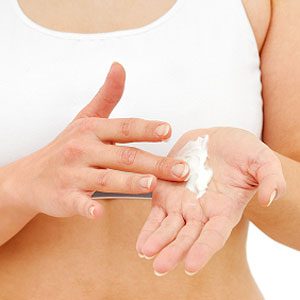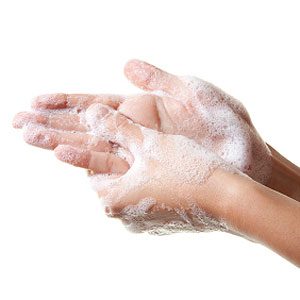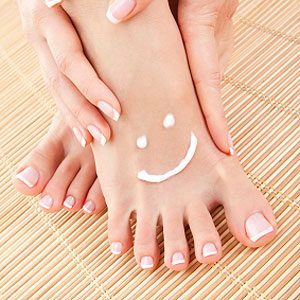
Dry Skin?
If your skin is feeling tight, itchy or inflamed, or it’s scaling, flaking or even cracking, dryness may be to blame. Dry skin is a common problem that often affects the arms, thighs, lower legs, sides of the abdomen, and the lips. But why does it happen? And how can you treat it? We talked to Dr. Peter Vignjevic, a dermatologist in Hamilton, Ont., about the causes of dry skin and what you can do to get some relief.

1. Dry Winter Skin
The colder months can be brutal on your skin. Outdoors, the wind dries it out; indoors, it’s battered by artificial heating. The key to fighting back is being vigilant. “Moisturize and stay covered up as best you can. Those are the two big ones,” says Vignjevic. He also suggests switching to a heavier moisturizer with shea butter or other occlusive ingredients. To seal in maximum moisture, apply it to your skin after a shower or bath.
Experts at Harvard Medical School also suggest lowering your thermostat a couple degrees and using a humidifier at home-however, be sure to clean it regularly to prevent mould and bacteria growth.

2. Over-washing
Over-washing is especially problematic for the hands, says Vignjevic. “People wash their hands a lot, and you can definitely get hand dermatitis, caused by both the water and the soap.” He recommends reducing the amount of exposure by wearing gloves when you’re working with wet things, such as when you’re cooking or washing dishes. When you do clean your hands, avoid harsh soaps (for example, those with words “antiseptic” or “antibacterial” on the label). Be sure to apply moisturizer afterward-keep a bottle by the sink so you don’t forget.

3. Aging
Maturing skin needs extra help when it comes to avoiding dryness. Vignjevic recommends trying anti-aging moisturizers, which are usually richer and may offer the skin added benefits. Serums, which have a liquid texture, can also rejuvenate aging skin by helping to repair damaged DNA, removing free radicals, and boosting the production of collagen and elastin (both are fibres that make your skin strong and elastic). “Start using a serum in your 40s,” advises Vignjevic.

4. Medication
While they’re powerful at combatting zits, certain anti-acne medications can also cause dry skin. Vignjevic tells his patients to use a moisturizer in conjunction with the therapy to help keep skin hydrated.

5. Other Skin Conditions
If your dry skin is persistent and you’re concerned that you may be suffering from a skin disorder such as eczema or psoriasis, get it checked out by your family doctor. There is a wide variety of skin therapies that can help, says Vignjevic, including topical steroids and oral medications.
[advertisement]